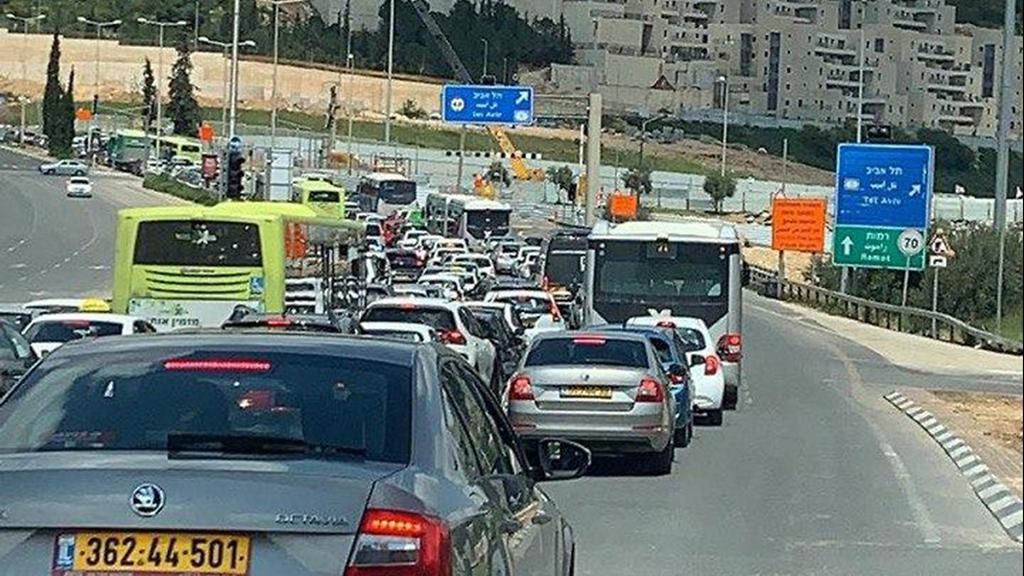Getting your Trinity Audio player ready...
Travel restrictions can into effect on four Jerusalem neighborhoods at noon on Sunday in an attempt to halt the spread of the coronavirus through the primarily ultra-Orthodox areas.
The order, will be in effect until Wednesday at 7am, applies to Neve Yaakov; Ramat Shlomo and Romema; Har Nof; and Mea Shearim, Makor Baruch, Bocharim and surrounding communities.
1 View gallery


A traffic jam in Jerusalem ahead of the lockdown of certain neighborhoods in the capital
(Photo: Maya Hasson Kraus )
Jerusalem continues to lead the country for the number of coronavirus cases, with some 1,959 confirmed infections as of Sunday.
The police are responsible for monitoring the restrictions, and multiple roadblocks were already in place by early Sunday afternoon.
Industrial areas, Palestinian neighborhoods and non-Orthodox areas within the neighborhoods are not included in the order.
Residents will be required to remain inside their neighborhoods and will be allowed to leave for essential work, medical reasons, a funeral of a close family member or the transportation of minors from one parent to the other.
The Defense Ministry and the Israel Defense Forces will be responsible for providing for the needs of residents confined to their homes and close vicinity.
The decision, which came after three days of cabinet deliberations, was opposed by Jerusalem Mayor Moshe Leon and Interior Minister Aryeh Deri - the former a resident of one of the areas now under restrictions.
Ahead of the decision, Jerusalem was divided into seven sections and 15 separate neighborhoods with a mostly religious population were identified as showing a greater rate of infection compared to the rest of the country.
Health Ministry officials wanted all 15 neighborhoods to be put under restrictions, but the final decision was altered after Leon and Deri claimed the ministry was singling out the ultra-Orthodox residents without proper cause.
Similar restrictions were put in place in the predominantly ultra-Orthodox city of Bnei Brak, where the rate of infection is 10 times higher than in neighboring

